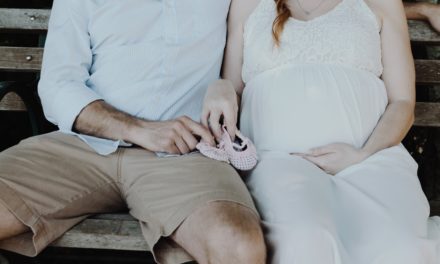Pre-menstrual symptoms Part 3 – Mood and hormones
A bit of history…
- Few areas of women’s health elicit more interest and controversy than the relationship of women’s hormones to the mood and behaviour.
- There have been observations for centuries that reproductive hormones cause rapid mood changes, anxiety and depression.
- The ancient Greek believed that a women’s wandering uterus was to blame for mood and behavioural problems.
- They coined the term “hysteria” and recommended removal of the offending organ as treatment.
- It has now generally been accepted, both in and out of the medical community, that a woman’s menstrual cycle does affect her emotional state. (1)
Is there a difference in levels of hormones in women with PMS?
- So far there is no evidence of differences in levels of sex hormones in women with and without PMS.
- Levels and patterns of hormone secretion (incl. oestrodiol, progesterone, FSH, LH and ovarian and adrenal hormones) over the menstrual cycle have not been found to be disturbed in women with PMS (1).
What is the current theory of the cause of PMS?
- The current theory is that some women have an underlying susceptibility in the interaction between the nervous system and hormones in response to normal menstrual cycle changes
- The exact physiological cause as yet unknown due to lack of sophistication in our current technology.
- The susceptibility may be a previous abuse or some biological conditions (1).

Does PMS cause depression or does depression cause PMS?
It is complicated…
- There is evidence that premenstruum (a period 2 weeks before the start of the period) can worsen an already existing depression and increase the risk of onset of the new episode of depression(2).
- 60% of women with unipolar mood disorder experience PMS and women with PMS have a 60% lifetime prevalence of major depression (3).
- The most common symptoms that cause women to seek treatment are depression, anxiety and irritability.
Why is PMS sometimes treated with anti-depressants?
- It has been proposed that changes in sex hormone in the second part of the cycle (after ovulation) trigger changes in the serotonin system in the brain, resulting in decreased in levels of this chemical messenger and the symptoms of depression (4).
- This theory is supported by the effectiveness of the antidepressants that increase levels of serotonin.
- Read more about conventional and complementary treatments of PMS in part 2.
Does stress affect PMS?
Yes, there is evidence that increased stress levels play a part in PMS (5).
There is also evidence showing that traumatic events (such as history of abuse) and per-existing anxiety are risk factors for developing PMS (6).
What psychological therapies can help with PMS?
Any strategy that reduces overall stress is likely to improve PMS and your wellbeing overall.
- Relaxation techniques have been repeatedly shown to be very helpful for emotional and psychological well-being. Try mindfulness meditation (course/app), progressive muscle relaxation or hypnotherapy.
- Assertiveness and time management training. Learning how to say ‘no’, learning to hold your boundaries and prioritise your needs are very valuable and effective techniques for emotional well-being. Like anything else they require practice but may have far reaching effects on one’s life.
- Cognitive behavioural therapy (CBT) is a talking therapy, which aims to equip you with skills to find more adaptive ways of coping with premenstrual symptoms, emotions and stress overall. In one study antidepressants were compared with a course of CBT (10 sessions). Medication was associated with a more rapid response, but at 1 year follow up the CBT group had better maintenance of treatment effects. There was no additional benefit of combination treatment (7).
- Psychotherapy is another type of talking therapy. It could be short-term or long-term and can be in individual or group sessions. In PMS context, it would be particularly useful for women with history of physical/emotional and sexual abuse.
Final Thoughts:
- Homeopathy may be an effective adjunct to psychological interventions as the remedy is selected for the whole person including their physical symptoms and psychological characteristics.
- Please read Part 1 to learn more about useful lifestyle changes in PMS and Part 2 to learn more about conventional and complementary treatment options.
If you would like help with managing PMS naturally, please contact 01962 856310 or email enquiries@thenaturalpractice.com to book an appointment.
You can read more about Dr Mishanina here.
References:
- Blumenfield, M., 2006. Psychosomatic medicine. 1st ed. Philadelphia USA: Lippincott Williams &Wilkins.
- Kornsterin S. The evaluation and management of depression in women across the life span. J Clin Psychiatry 2001:62 (suppl 24):11-17.
- Gold JH, Severino SK, eds. Premenstrual Dysphoria: Myths and realities. Washington, DC: American Psychiatric Press; 1994;67-98.
- Spinelli MG.depression and hormone therapy. Clin Obstet Gynecol 2004;47(2):428-436
- Roca CA, Schmidt PJ, et al Defferential menstrual cycle regulation of hypothalamic-pituitary-adrenal axis in women with premenstrual syndrome and controls. J Clin Endocrinol Metab 2003;88(7):3057-3063
- Perkonigg A, Yonkers KA, et al. Risk factors for premenstrual dysphoric disorder in a community sample of young women: the role of traumatic events and posttraumatic stress disorder. J Clin Psychiatry 2004;65(10):1214-1322
- Wyatt KM, Dimmock PW, O’Brein PMS. Selective serotonin reuptake inhibitors for premenstrual syndrome. Cochrane Database Syst Rev
Photo by Sam Burriss on Unsplash




